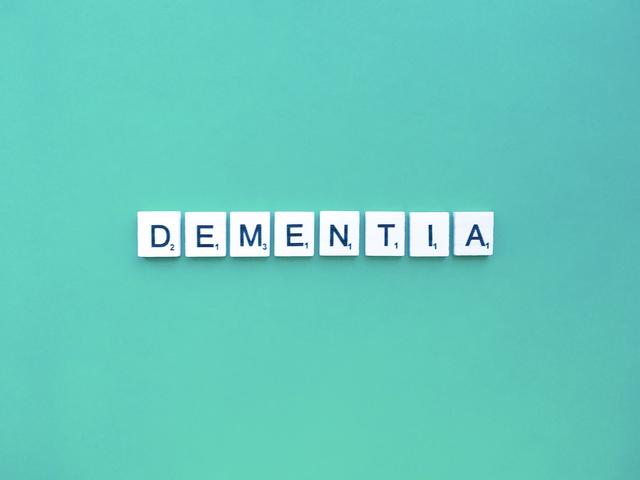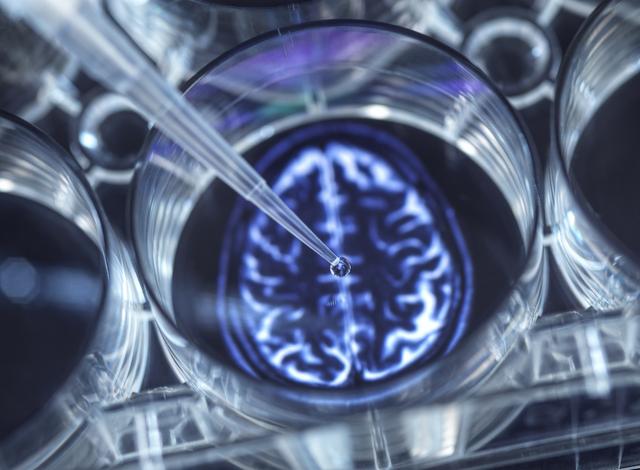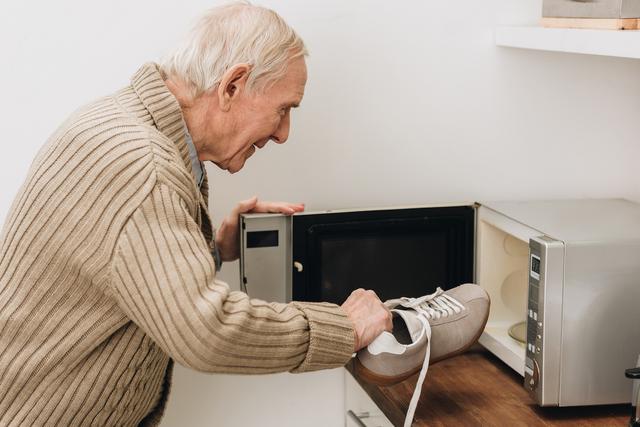Memory Care•Assisted Living
Forgetfulness or Dementia: Is It Normal Aging?
Memory Care•Assisted Living
Forgetfulness or Dementia: Is It Normal Aging?
Introduction
Most families come to a time when an aging parent or loved one needs to consider changing their living situation from a home setting to a senior living community that offers assisted living and memory care. Knowing the type of senior living community that best fits your family and loved ones' needs is essential. Also understanding when it's time to move into assisted living or a memory care community. When you are ready, here is our link to begin your search for senior living and care Start Your Search on Purple Door
Here is some information that may assist you in making an informed decision.
Normal Part of Aging
Occasionally, a person may misplace things, forget what they are doing, or forget names or specific words. These typical signs and symptoms of memory problems are a natural result of aging and are typically no cause for concern or special treatment. The National Institute on Aging has a lot of valuable information on the aging process, prevention, and disease control. Another great resource is the Alzheimer's Association.
Mild Cognitive Impairment - Age-Related Cognitive Decline
Many people experience some cognitive decline as they age. This is normal and is not severe enough to interfere with daily life for most people. However, some people experience more symptoms affecting memory or significant cognitive decline, known as mild cognitive impairment (MCI). People with MCI have difficulty with memory, language, thinking, or judgment that is greater than what would be expected for their age. They may also have trouble planning and organizing and may be more forgetful than usual. A person with MCI will forget about conversations that have taken place and information that has been provided, such as scheduled events or appointments.
While MCI is not dementia, it is considered a dementia risk factor. See a doctor if you or a loved one are experiencing any of the symptoms of MCI. No one test can diagnose MCI, so the diagnosis will be based on a review of symptoms, medical history, and results from cognitive tests. A person with MCI may develop dementia, while others may not. MCI can be the early stages of neurodegenerative diseases causing Dementia, including Alzheimer’s (Mayo Clinic).
Alzheimer's Related Dementia
Dementia is an umbrella term for a decline in cognitive function due to disease or injury. It causes a decrease in mental ability that is severe enough to interfere with daily life. Memory loss is an early symptom of dementia. Although it affects people of all ages, it is most common in older adults. Dementia is caused by damage to brain cells, which can be caused by disease, injury, or other conditions.

Dementia - Early-Onset Alzheimer's Disease
Dementia can occur in people under the age of 65. This is known as early-onset dementia. The risk factors for early onset dementia are rare and often run in the family history.
The symptoms of early-onset dementia are the same as the symptoms of dementia that occur in older adults. The main difference is that the symptoms develop at a younger age.
Early-onset dementia is a progressive, irreversible, and fatal disease. Early diagnosis is essential so that treatment can be started and the progression of the disease can be slowed down.
No one test can diagnose early-onset dementia. The diagnosis will be based on a review of symptoms, medical history, and cognitive test results. A brain scan may also rule out other conditions that could cause dementia-like symptoms.
Treatment for early-onset dementia is focused on managing the symptoms and slowing down the progression of the disease. Some medications can help with memory loss, confusion, and other symptoms. It is essential to see a doctor if you or a loved one are experiencing any of the symptoms of early-onset dementia. Early diagnosis and treatment are critical for slowing down the progression of the disease.

Dementia - Alzheimer's
Alzheimer's disease is the most common dementia diagnosis in older adults. Alzheimer's is a progressive neurodegenerative disease affecting the brain cells responsible for memory, thinking, and behavior. Alzheimer's accounts for 60 to 80% of all dementia cases. It primarily affects people over 65, but as discussed above, early-onset Alzheimer's can develop into dementia or occur in people in their 40s and 50s.
Alzheimer's disease damages the brain by destroying nerve cells and causing inflammation. This damage leads to a decline in cognitive function and increased behavior problems. Symptoms of Alzheimer's disease include memory loss, confusion, difficulty communicating, and difficulties with activities of daily living. The early symptoms of Alzheimer's disease are often mild and may go unnoticed. As the disease progresses, the symptoms become more severe, eventually leading to death.
Alzheimer's disease is not a normal part of aging. It is a progressive, irreversible, and fatal disease. Early diagnosis is essential so that treatment can be started and the progression of the disease can be slowed down. There are no blood tests that can diagnose Alzheimer's disease. The diagnosis will be based on a review of symptoms, medical history, and cognitive test results. A brain scan may also rule out other conditions that could cause dementia-like symptoms. Treatment for Alzheimer's is focused on managing the symptoms and slowing down the progression of the disease. Some medications can help with memory loss, confusion, and other symptoms.

Vascular Dementia
Vascular dementia is the second most common form of dementia, accounting for 20 percent of all cases. It occurs when the brain's blood vessels are damaged, leading to a decline in cognitive function. A stroke or other brain blood flow problems can cause this damage. High blood pressure, or hypertension, is one of the most significant risk factors for vascular dementia. Symptoms of vascular dementia include memory loss, confusion, difficulty communicating, and difficulties with activities of daily living. The symptoms may come on suddenly or gradually.
No one test can definitively diagnose vascular dementia. The diagnosis is based on a review of symptoms, medical and physical history, cognitive tests, and brain scan results. There is no cure for vascular dementia, but there are treatments that can help manage the symptoms.

Lewy Body Dementia
Dementia with Lewy bodies accounts for 10 to 20 percent of all cases. It occurs when abnormal structures called Lewy bodies form in the brain, leading to a decline in cognitive function.
Symptoms of dementia with Lewy bodies include memory loss, confusion, difficulty communicating, and difficulties with activities of daily living. People with this type of dementia may also experience hallucinations and delusions. Lewy body dementia can be challenging to diagnose because its symptoms are similar to those of other types of dementia, such as Alzheimer's disease and Parkinson's disease.
Lewy bodies are abnormal deposits of a protein called alpha-synuclein. These deposits damage brain cells and lead to thinking, movement, behavior, and mood problems. Chronic memory failure impedes the ability to reason, reduces mental capability, disrupts normal cognitive processes, and causes personality changes. Seniors with symptoms of Lewy body dementia need a higher level of care to prevent injury and slow the worsening of their condition, so when searching for a care facility for your senior who is dementia diagnosed, it is vital to ensure any facility under consideration can provide the extra care necessary (ALZ).
Lewy body dementia affects many parts of the brain. However, dementia with Lewy bodies is most commonly found in the cortex, the brain's outer layer responsible for thinking, memory, and language. People with Lewy body dementia may experience hallucinations and delusions as the disease progresses. They may also have problems with movement.
No one test can definitively diagnose Lewy body dementia. The diagnosis is based on a review of symptoms, medical history, cognitive tests, and brain scan results. There is no cure for Lewy's body.

Dementia - Frontotemporal
Frontotemporal dementia is another type of dementia that affects younger adults. Frontotemporal dementia is caused by damage to the frontal and temporal lobes of the brain. These are areas of the brain responsible for personality, behavior, and language. The frontal lobe is responsible for planning, decision-making, inhibitory control, and working memory. The temporal lobe is also responsible for memory and emotion.
People with frontotemporal dementia may have changes in their personalities and behaviors. They may become more impulsive or misbehave in social situations. Other behavioral symptoms may be problems with language, such as difficulty finding words or speaking in sentences that do not make sense.

As frontotemporal dementia progresses, people may lose the ability to care for themselves. They may become unable to eat, dress, or bathe without help. No one test can definitively diagnose frontotemporal dementia. The diagnosis is based on a review of symptoms, medical and physical history, cognitive tests, and brain scan results. There is no cure for frontotemporal dementia, but there are treatments that can help manage the symptoms.
Mixed Dementia
Mixed dementia is a condition involving more than one type of dementia. The most common types are Alzheimer's and vascular dementia, but it can also include Lewy body dementia, frontotemporal dementia, or other rarer types of dementia. The symptoms of mixed dementia are similar to those of other types of dementia. People with mixed dementia may have memory, thinking, and behavior problems. They may also have changes in their mood and personality.
No one test can definitively diagnose mixed dementia. The diagnosis is based on a review of symptoms, medical and physical history, cognitive tests, and brain scans.
Self-Administered Gerocognitive Examination of Dementia Symptoms
Here is a link to a simple self-administered gerocognitive exam, or SAGE test, to help diagnose dementia. This examination can assist in detecting early signs of Alzheimer's disease and cognitive decline, which is vital in limiting the disease's damage and slowing its progress. Learn more about SAGE here at Ohio State.
The Continuum of Care
As we know, as dementia progresses, being prepared for a change in daily life is essential. Often, by the time you need it, finding a community can feel rushed. Start your research during early diagnosis. Take the time to know your options before you can't manage behavioral symptoms and thoroughly evaluate your loved one's needs. Often, people take comfort in knowing in advance where they may be living and appreciate the opportunity to be involved in the decision ahead of time or in the early stages after the dementia diagnosis.
Finding a community that offers a continuum of care is advantageous if memory loss is a concern. These communities allow a resident to age without moving to another community for a higher level of care. Look for communities that offer several levels of care (for example, a facility with independent living, assisted living, and memory care). If memory loss is a concern, starting your search and moving in early is vital. With an ever-increasing senior population and longer life expectancies, the demand for senior living is high, and it is not uncommon for assisted living communities to have waitlists. Begin your search on this link: Start Your Search on Purple Door.
_________________________
This article is intended solely for informational purposes and should not be construed as medical, legal, or financial advice. It does not establish a professional relationship between Purple Door Finders and the user. For any personal matters or decision-making, it is strongly recommended to seek guidance from a qualified healthcare provider, attorney, or financial advisor. While links to third-party websites are provided for your convenience, please be aware that Purple Door Finders neither endorses nor assumes responsibility for the content of these external sites.
FAQ
What is the continuum of care?
A community which provides the continuum of care starts out with independent living, then when health care needs change, the community can offer assisted living, memory care and skilled nursing usually on one campus or location.
Does mild cognitive impairment lead to dementia?
A person will forget about conversations that had taken place and information that was provided, such as scheduled events or appointments. A person with mild cognitive impairment (MCI) may end up developing dementia while others may not. MCI can be the early stages of neurodegenerative diseases causing dementia, including Alzheimer's.
What is the difference between assisted living and continuing care?
Continuing care means the resident can stay in one place to age. The resident does not need to move to another community as health care needs change or increase. Assisted living is one component of continuing care. However, continuing care communities or facilities offer a higher level of care than assisted living.



